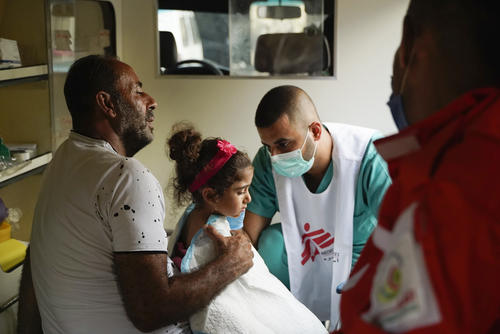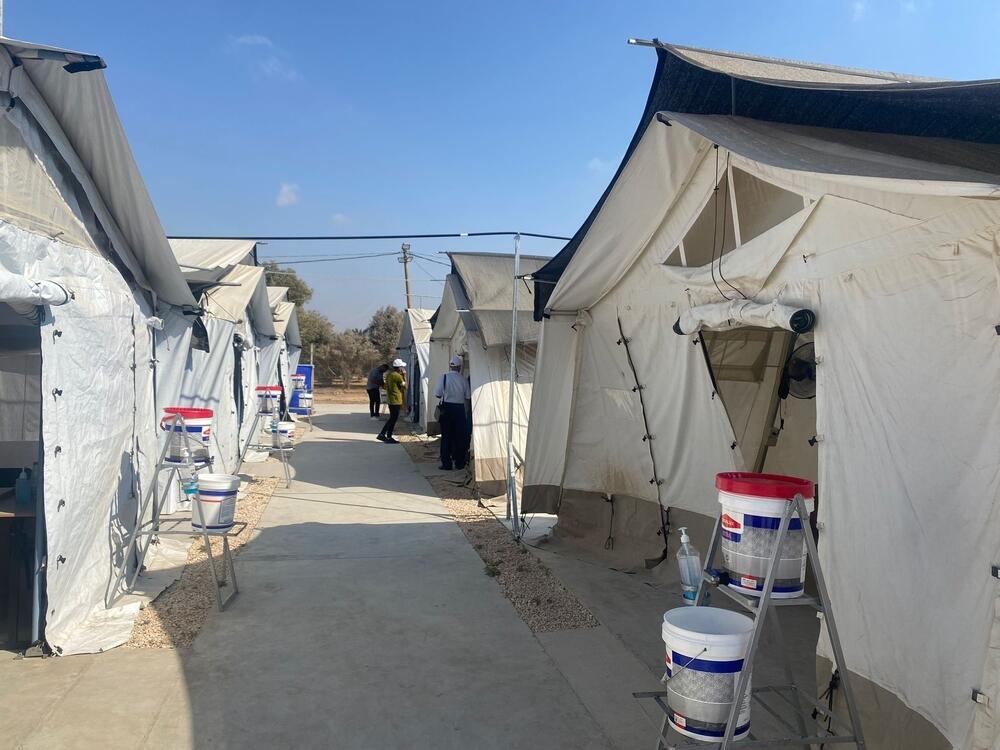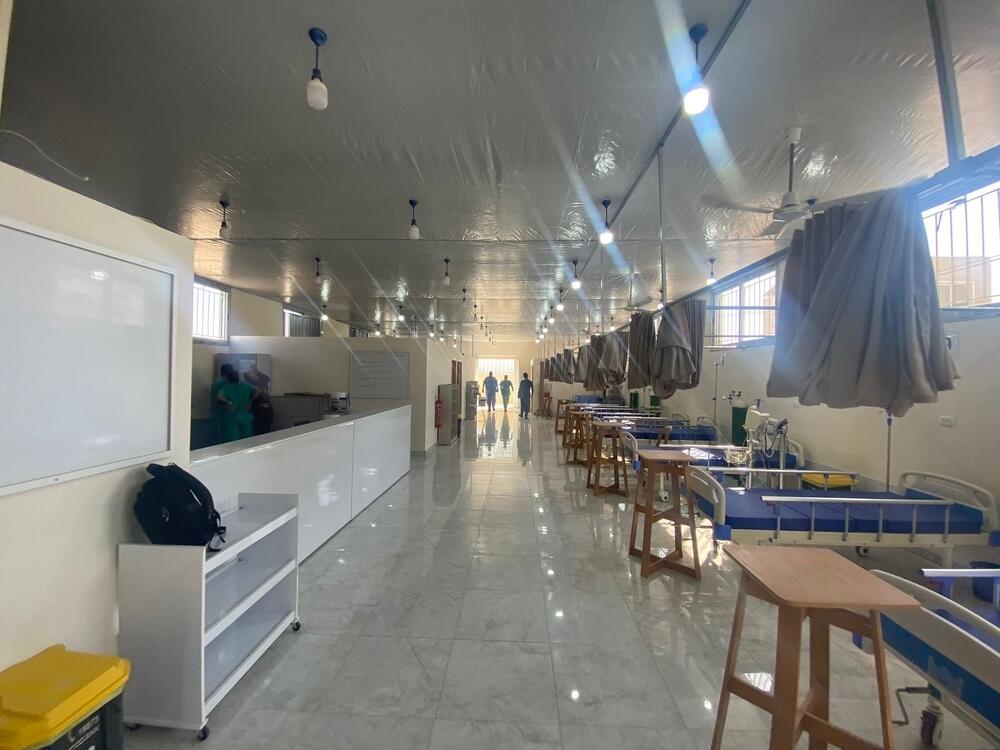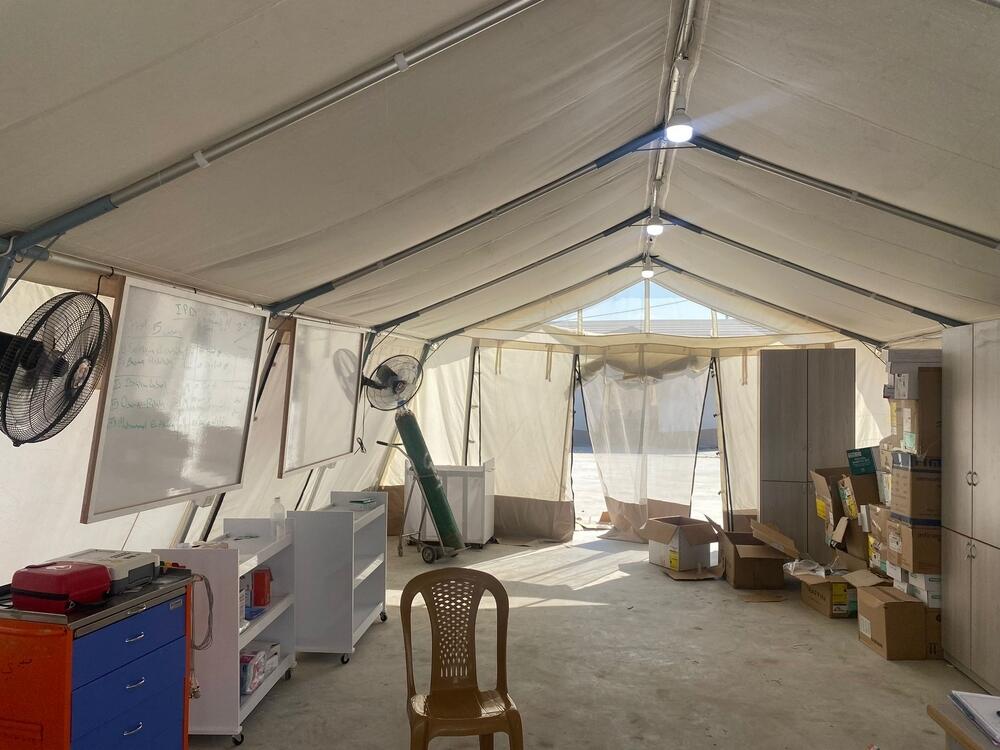Gaza: MSF opens a field hospital amid dismantling of healthcare system
Almost 650 patients fled the MSF-supported Al Aqsa Hospital in Deir Al Balah, Central Gaza, following an evacuation order issued by Israeli forces on 25 August and an explosion around 250 metres from the hospital.
As a result, we have opened a field hospital earlier than planned and started receiving first patients amid a severe lack of supplies and resources.
Field hospitals are not a solution, but a last resort in response to Israel’s dismantling of the healthcare system. Médecins Sans Frontières / Doctors Without Borders (MSF) calls on all warring parties to respect and protect the last remaining hospitals in Gaza.
Even as it opens, the field hospital in Deir Al Balah already faces huge pressure as the other remaining hospitals are under threat and access to supplies is extremely limited.
This field hospital was designed to be complementary and to provide support for other larger hospitals, like Al Aqsa.
However, as the frontline rapidly approached Al Aqsa Hospital on Sunday 25 August, many patients have fled in fear for their lives. Without hospitals like Al Aqsa and Nasser in Khan Younis, field hospitals will struggle to cope with the urgency and abundance of medical needs.
“There is a cumulative impact to the dismantling of Gaza’s healthcare system by Israeli forces,” says Juliette Seguin, MSF Emergency Coordinator.
“Each health structure dismantled increases the pressure on those remaining, while decreasing people’s access to healthcare. Without an immediate and sustained ceasefire, the notion of a true medical humanitarian response is an illusion.”
A hospital transformed
On Sunday 24 August, before an evacuation order was issued close to Al Aqsa Hospital, there were approximately 650 patients receiving care there, and hundreds more seeking sanctuary in the hospital grounds. Today, Al Aqsa Hospital is almost unrecognisable.
“The hospital looks really empty. Before the evacuation order and explosions, the hospital was so crowded that patients sometimes had to be treated on the floor,” says Dr Sohaib Safi, Deputy Medical Coordinator for MSF in Gaza.
“Patients were everywhere, often queuing in front of the hospital, desperately seeking care. The atmosphere is one of anxiety due to the imminent threat. We encountered several patients with burns, complicated wounds and people in need of amputations, who are currently receiving care at the hospital.
“These cases are likely the tip of the iceberg – we know there are many more people in need of urgent care who can’t reach the hospital”.
Medical care where it's needed most
Help us care for people caught in the world's worst healthcare crises.

Displaced people sheltering around the hospital has become commonplace; the majority of Palestinians in Gaza have been displaced multiple times since October, and the so-called ‘humanitarian zone’ identified by Israel, has reduced significantly.
In official terms, there are just 16 square miles for 1.9 million people that aren’t designated an active combat zone. However, the so-called humanitarian zone has also been routinely bombed, leaving people with impossible dilemmas on how best to survive in Gaza.
The last resort
For months, MSF supply and medical teams have been working to establish this field hospital, repeatedly delaying its opening due to continued challenges in bringing essential supplies into Gaza.
“No amount of field hospitals will replace what was a functional healthcare system in Gaza”
However, as the threat to Al Aqsa Hospital grows, MSF teams were left with no choice but to prematurely open the field hospital located a few miles west.
“No amount of field hospitals will replace what was a functional healthcare system in Gaza,” says Dr Sohaib.
“This is the last resort to provide urgently needed medical care. But it really is a drop in the ocean – as the facade of a ceasefire is presented time and again, the ability to sustain human life in Gaza diminishes.”
No hope without a ceasefire
Despite the enormous supply and access challenges, a second field hospital in the same location is being set up.
According to the World Health Organization (WHO), 20 out of 36 hospitals in Gaza are now non-functional, and temporary structures like field hospitals lack the capacity for advanced surgical care, and many other lifesaving essentials to treat patients in critical condition or with long-term medical conditions.
Over the last 11 months MSF teams have been forced to leave 14 medical facilities in the Gaza Strip.
The last 11 months have clearly illustrated that without an immediate and sustained ceasefire, there can be no meaningful medical humanitarian response. MSF calls on all warring parties to respect and protect the last remaining hospitals in Gaza.
MSF and the Israel – Gaza war
An unprecedented humanitarian crisis is unfolding in Gaza. MSF teams have worked to treat the wounded and supply overwhelmed hospitals as indiscriminate airstrikes and a state of siege threaten millions of men, women and children.


